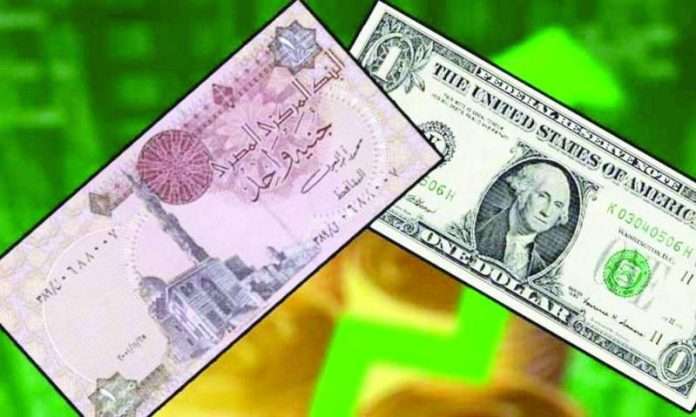When the Central Bank of Egypt revealed that it would adopt a flexible exchange rate system, which would reverse the pound’s exchange against foreign currencies according to the forces of supply and demand; the pound’s exchange rate against the dollar touched its lowest level ever, close to 24.
In practice, the Egyptians are not the only ones who seemed to be preoccupied with the trends of balancing the flotation of the pound, as analyzes show that among them Kuwaitis are winners from this measure and others are losers from the new path of the pound, and from here the story begins, reports a local Arabic daily.
Far from the Central Bank of Egypt’s goal in supporting the local currency, there are two types of people affected by the decision to float the pound, the first of which is the negative team, which has existing investments in Egypt in the form of bank balances or any of the liquid investments, as this team finds itself exposed to unspecified losses even now because of the decision, and its measurement remains dependent on the amount of money he has in the Egyptian market.
It is worth noting that the majority of workers in the Gulf do not depend for their remittances on the official market, because they do not accept the official exchange rate of the dollar, and resort to the black market in order to obtain a better exchange rate, and here they are followed by individual Kuwaitis, and some speculative companies in the Egyptian market.
In a quick reading, the circle of losers and winners from floating the pound can be identified in the following, whether from owners of available savings inside Egypt or owners of flows that may come from abroad.
Any liquid money that is in the pound has lost about 25 percent of its real value, after the exchange rate of the pound against the dollar fell to more than 24 pounds, from about 19.3 before the day of the flotation. Here, the owners of these funds are very vulnerable if they decide to conduct hostile deals by transferring their money at the present time outside Egypt.
Although the decision was expected since negotiations began between Egypt and the IMF about two months ago to float the pound, there were depositors who expected the step to be delayed a little, driven by the high interest rate, which reached 13.5 percent before the last float, in an effort to prevent ‘dollarization’ encouraging banks to offer savings tools.
Among the most important gainers in this case are dollar depositors, as the actual value of the pound-denominated funds decreased by about 25 percent, the value of the dollar-denominated funds increased by the same value, in addition to their interest, which is close to 3 percent, which is a positive reflection on the owners of these deposits, especially those who The dates of their exchange are approaching, or the deposits that owners will want to convert
Whoever has fixed obligations in the form of financing installments or payment payments for real estate or land he has invested in, the float step will achieve a large profit margin when equalizing his payments in pounds, and then the value of his remaining obligations to pay will decrease with the increase in the purchasing power of the currency of the country in which he works.

















